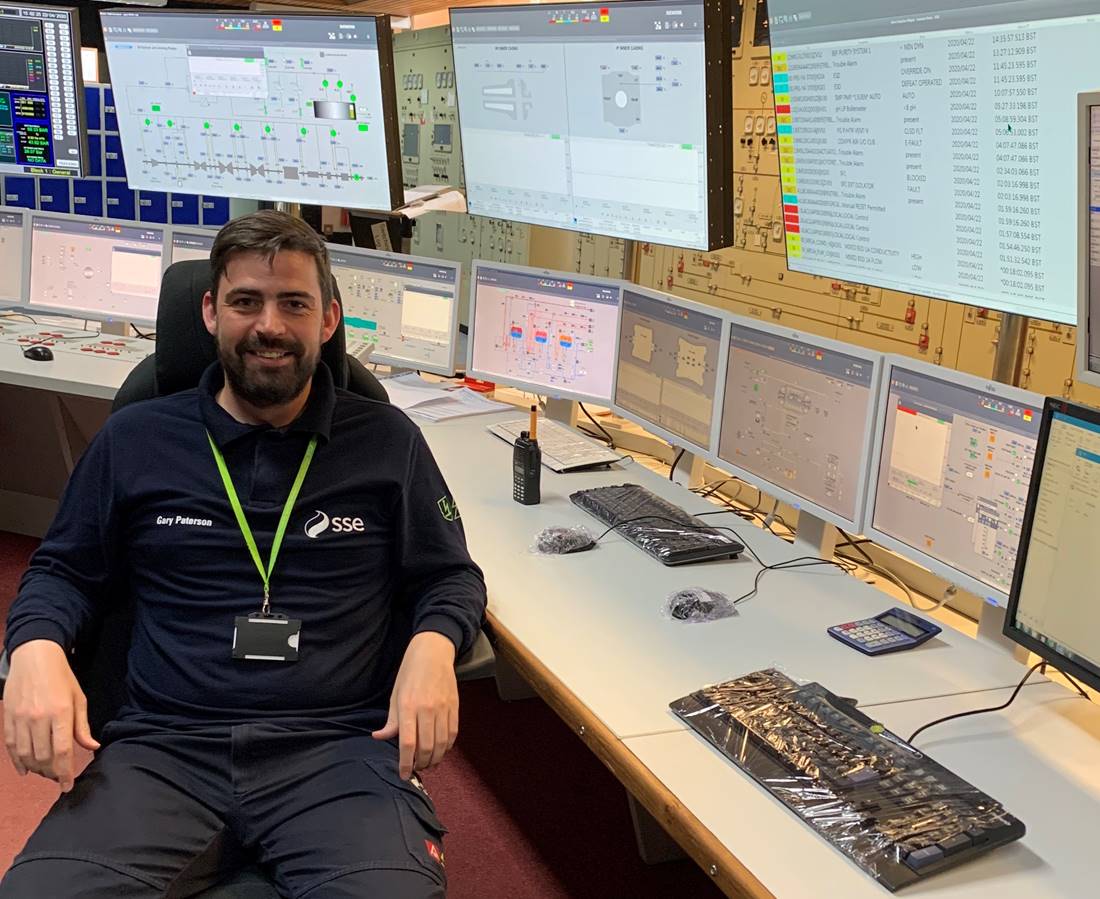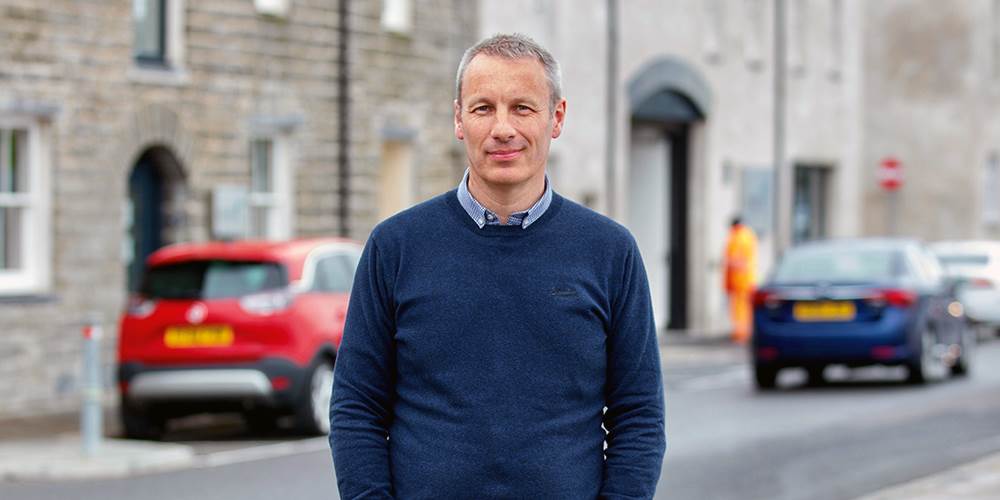You’ve reached your limit!
To continue enjoying Utility Week Innovate, brought to you in association with Utility Week Live or gain unlimited Utility Week site access choose the option that applies to you below:
Register to access Utility Week Innovate
- Get the latest insight on frontline business challenges
- Receive specialist sector newsletters to keep you informed
- Access our Utility Week Innovate content for free
- Join us in bringing collaborative innovation to life at Utility Week Live

A food delivery service in Perthshire has been handed almost £50,000 from the community benefit fund for SSE Renewables’ Griffin and Calliachar windfarms to help provide free meals to over-70s and vulnerable people who are self-isolating in nearby towns and villages.
Deliveries by Feldy-Roo, which operates seven days a week from a bar and restaurant in Elgin, include a coffee and newspaper, hot soup, rolls, cakes and scones, milk and an evening meal.
The money – £47,300 to be exact – will also be used to provide protective equipment for volunteers who use their visits as opportunity to check in on older residents and make sure they are okay.
“The funding awards will allow us to maintain the growing service required to help the elderly and vulnerable in our community who are in isolation and or shielding from this unknown level of pandemic,” said Feldy-Roo fundraiser Gordon Leighton.
“Our thanks and appreciation to SSE for the wonderful grant, which will go a long way not only today but well into the future. Be safe everyone.”
SSE has also highlighted some of the hard work being done its staff to keep power flowing through the lockdown.
Alistair Phillips-Davies, SSE chief executive, told Utility Week: “Everyone has had to make great changes to their working and personal lives and we owe a huge thanks to all critical workers, not just in our sector, but across the board.
“Our workforce has shown fantastic commitment, professionalism and resolve as they have continued to deliver the safe, secure and reliable supply of electricity, which the country is depending upon, and we could not be more thankful.
“A great deal of time, resources and effort has been put into protecting our employees including health screening, staggered shifts, increased cleaning and greater use of PPE.
“Our power stations, wind-farms and networks are vital in supporting the country throughout the coronavirus and we will continue to play our part in the weeks and months ahead.”
Peterhead
The workers SSE has highlighted include Gary Paterson, a unit operator in the control room at the Peterhead power station in Scotland.

The company has introduced strict social distancing measures to keep shifts apart and avoid the spread of infection, as Paterson explained: “At the beginning of each shift we now arrive through a different entrance to those leaving, so that we don’t come into contact with anyone from another team.
“We give written handovers between shifts instead of face-to-face, and where necessary, we provide further information over the phone – all different to our usual ways of working but still delivering.
“All of the keyboards and other devices in the control room are decontaminated and wrapped with cling film at the beginning and end of each shift. If any devices have to be shared at any point, we use latex gloves to protect ourselves and our colleagues.”
He continued: “We’re used to stringent safety practices on site – when you are in the energy industry it’s so important – and these new ways of working are just an extension of those measures.”
Fellow Peterhead worker, Ami Singh, said they have “rallied together” in response to the crisis: “Our team of hands-on engineers, who typically spend their time undertaking plant monitoring, inspections, testing and managing projects on site, are all working differently now.
“Working from home has become the new normal for the team, and we are using more technology to remotely monitor plant performance and provide technical support to our operators.”
Two of the turbines at the plant are currently undergoing regular inspections. Kevin Beaumont, lead asset engineer at Peterhead, said: “In normal circumstances the manufacturer, Siemens Energy, would come to site several times in the run up to the outages to agree the plan and any additional work required. However, on this occasion, this preparatory work all had to be done remotely by phone and Skype.
“Siemens Energy now have around 20 personnel on site, and we’ve helped them secure exclusive use of an entire local hotel, providing accommodation and three meals a day, to ensure they can carry out the work while minimising contact with anyone else.”
“There is a lot of work that has to go on across the country to ensure the power keeps flowing and we’re happy we can play our part in the wider efforts to keep the country going in this difficult time,” he remarked.
Beatrice
Similar measures have also been put in place at Scotland’s largest offshore windfarm which has now been up and running for almost a year. With a combined capacity of 588MW, Beatrice’s 84 turbines produce enough power each year to meets the need of 450,000 homes.
Operations manager Martin Sutherland said there are usually around 50 people working out of its operations and maintenance base in Wick: “Just now, during the outbreak, we are running with only essential control room employees; two members of staff at a time.
“The site is also a meeting place for technicians before they head offshore, but the teams are observing guidelines and maintaining an acceptable distance from one another. The rest of us are able to work from home, keeping in contact and checking via regular Skype meetings. But we remain on call if required to head, safely, to site.

“For those working in the control room, they have their own dedicated access and egress areas and separate welfare facilities. There are also strict hygiene controls in place for shared areas such as the control room desk.”
Sutherland said this time of year would normally see four crew transfer vessels (CTVs) heading out to the windfarm each day as the servicing window opens over the spring and summer. Instead, just one is leaving daily as crews focus on the essential work needed to keep the turbines spinning.
The numbers on board have also been reduced: “CTVs are relatively small vessels, so to ensure we can maximise social distancing, crews of twelve have been reduced to crews of six to allow a safe distance between individuals. Similar to scenes outside some supermarkets, the technicians are waiting to transfer onto the turbines by forming a queue with spaces of at least 2 metres between them.
“To ensure the safety of our workers still going offshore, we have introduced health screening measures, and personal protective equipment is available on the boat if needed. On days when the weather turns out to be too bad to sail, the teams are stood down and head straight back home.
“It’s a very strange time but it’s one we’re all helping one another through. Whether it’s sharing photos of a good day out at site for those of us working indoors or just checking in to ensure people are taking time away from their screen. We’re all very proud to be playing our part in keeping Beatrice turning.”
Keeping Us Connected is a new series from Utility Week in which we highlight the achievements of employees across the utilities sector in getting the UK through lockdown. To nominate a member of your team for recognition, please email jameswallin@fav-house.com.
Please login or Register to leave a comment.